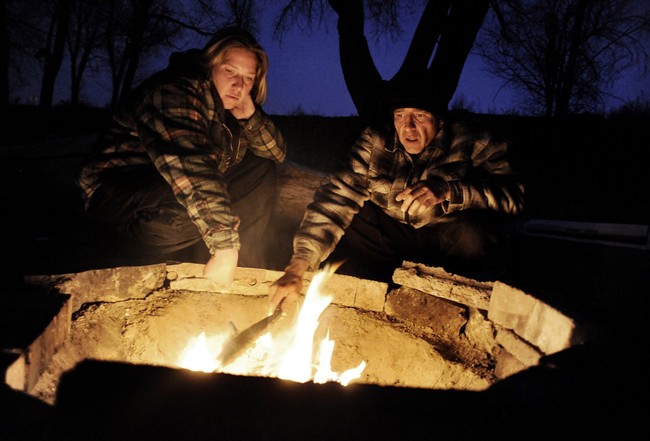With the threat of wildfires growing across B.C., the province is taking steps to try to minimize the risk of human-caused wildfires.

Starting at noon on Friday, campfires are now banned in the Cariboo, Kamloops and Southeast fire centre regions.
These campfire bans will remain in place until further notice.
READ MORE: Whistler increases fire rating to ‘Extreme’ as weather heats up across B.C.
The Cariboo fire centre stretches from Clinton, north to the Cottonwood River, east to Wells Gray Provincial Park, and west to Tweedsmuir Provincial Park.
The Southeast fire centre extends from the U.S. border to Mica Dam and from the Okanagan Highlands/west side of the Monashee Mountains to the B.C./Alberta border. This region also includes several provincial parks including Valhalla, Kokanee Glacier, Top of the World and Elk Lakes.
The Kamloops fire centre extends from Blue River in the north to the U.S. border in the south and from Bridge River in the west to Monashee Mountains in the east.

There is already a campfire ban in the Coastal fire centre.
READ MORE: Air quality advisory for Metro Vancouver, Fraser Valley
The Cariboo, Kamloops and Southeast fire centre is currently experiencing dry conditions and elevated fire danger ratings. The rating is extreme throughout the regions with some small pockets of high fire ratings.
Specifically, prohibited activities will include:
- lighting any open fire of any size
- the burning of stubble or grass over any area
- the use of tiki torches and chimineas
- the use of fireworks
- the use of sky lanterns, burning barrels or burning cages of any size or description
- the use of binary exploding targets (e.g. for target practice)
- the use of air curtain burners (forced-air burning systems)
READ MORE: Wildfire burning west of 100 Mile House, B.C. grows to 1,200 hectares; evacuation orders issued
These prohibitions do not apply to cooking stoves that use gas, propane or briquettes or to a portable campfire apparatus with a CSA or ULC rating that uses briquettes, liquid or gas so long as the height of the flame is less than 15 centimetres.
Anyone found in contravention of an open burning prohibition may be issued a ticket for $1,150, required to pay an administrative penalty of $10,000 or, if convicted in court, fined up to $100,000 and/or sentenced to one year in jail. If the contravention causes or contributes to a wildfire, the person responsible may be ordered to pay all firefighting and associated costs.





Comments